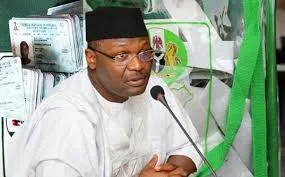
INEC Chairman Explains the Significant Burden of Electoral Processes in Nigeria
The Chairman of the Independent National Electoral Commission (INEC), Professor Mahmood Yakubu, has described conducting elections in Nigeria as a significant burden due to the country’s unique challenges.
He made this statement during a recent address where he highlighted the complexities involved in organizing elections in Africa’s largest democracy.
Key Challenges Highlighted:
- Size and Population: Nigeria has over 93 million registered voters and a vast geographical spread, making logistics a daunting task.
- Security Issues: The prevalence of violence, insurgency, and banditry in certain regions poses risks to election officials and voters.
- Logistics: The distribution of sensitive and non-sensitive materials to over 176,000 polling units across the country is resource-intensive.
- Funding: The cost of conducting elections in Nigeria is high due to the scale and measures required to ensure credibility and security.
- Technology Integration: The deployment of technologies like BVAS (Bimodal Voter Accreditation System) presents both opportunities and challenges, especially in remote areas with limited internet access.
Despite these hurdles, Professor Yakubu reassured Nigerians of INEC’s commitment to conducting free, fair, and credible elections.
He also called for collaborative efforts from stakeholders, including political parties, security agencies, and citizens, to overcome these challenges.